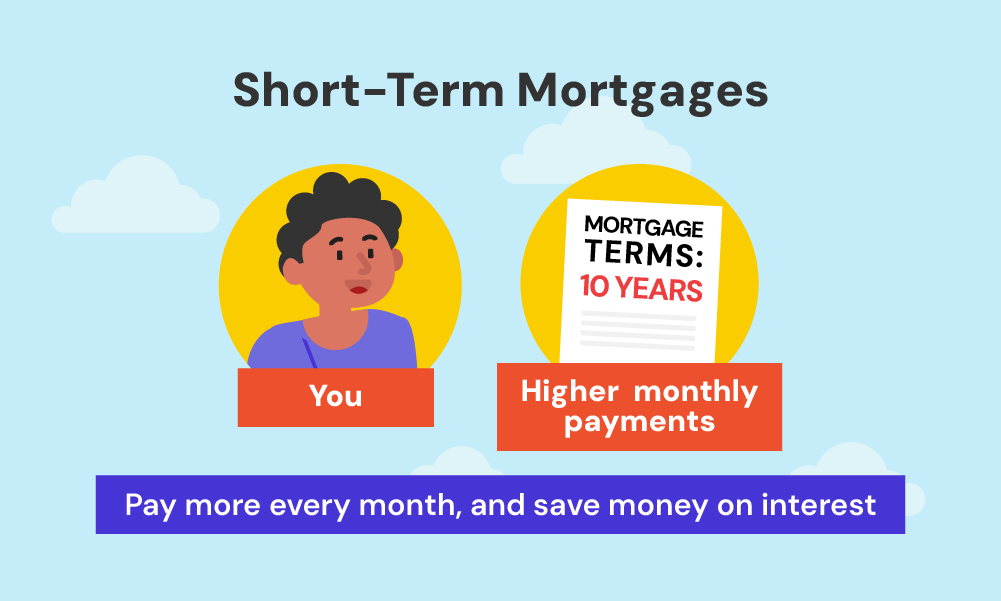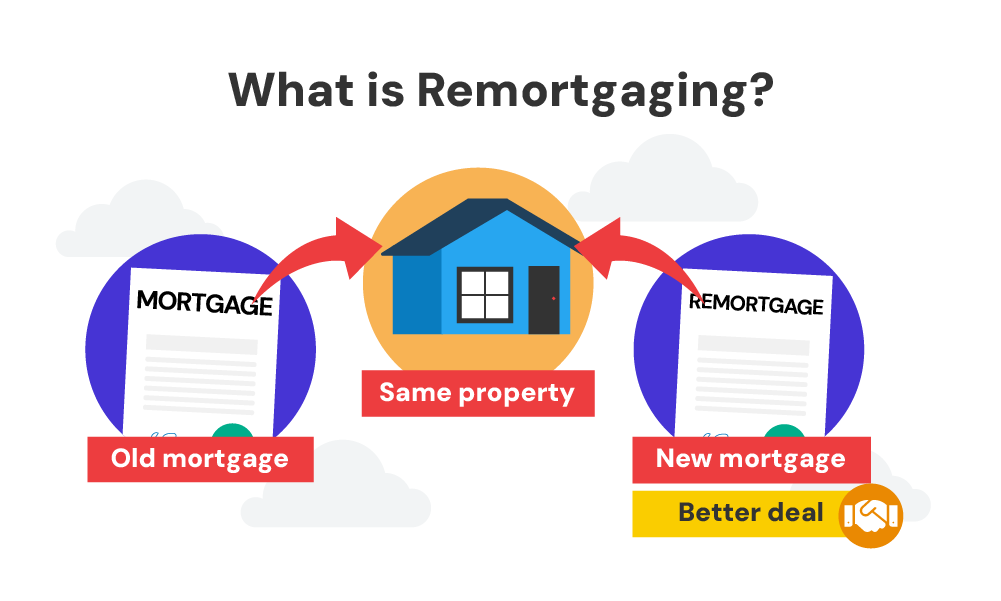- Whatâs the Average Mortgage Length in the UK?
- Is a Longer Mortgage Term Right for You?
- The Pros and Cons of a Long Mortgage Term
- Is a Short-Term Mortgage Ever a Good Idea?
- How Does Age Affect Maximum Mortgage Term?
- Can You Change Your Mortgage Term?
- Whatâs the Maximum Mortgage Term for Buy To Let Mortgages?
- What Should You Consider When Choosing a Mortgage Term?
- The Bottom Line
What’s the Maximum Mortgage Term in the UK?

When you’re looking to buy a home, one of the key decisions you’ll face is how long you want your mortgage to last.
In the UK, the maximum mortgage term has been steadily increasing over the years, with some lenders now offering terms of up to 40 years.
But what does this mean for you as a borrower?
Let’s dive into the world of mortgage terms and explore the implications of choosing a longer repayment period.
What’s the Average Mortgage Length in the UK?
Traditionally, the average mortgage length in the UK has been about 25 years.
But with rising house prices and affordability challenges, lenders now offer longer terms, even up to 40 years.
Banks like Barclays, Nationwide, Halifax, HSBC, NatWest, and Santander provide these extended mortgage options.
Longer terms are especially popular among first-time buyers wanting to manage monthly repayments by spreading costs over a longer period.
Is a Longer Mortgage Term Right for You?
Opting for a mortgage longer than 25 years—say 30, 35, or 40 years—can make your monthly payments more affordable.
For instance, if you borrow £200,000 at a 3% interest rate over 25 years, your monthly payments would be around £948.
Stretching the term to 40 years reduces those payments to about £716. That £200 difference can make a big impact.
However, keep in mind that lower monthly payments mean you’ll pay more in interest overall.
Over 25 years, you’d pay about £84,500 in interest, but over 40 years, it jumps to around £143,700—an extra £59,200.
When choosing your mortgage length, consider your long-term financial goals.
Do you want to be debt-free by a certain age? Are you planning for retirement? These considerations should guide your decision.
To make an informed decision, consider using a mortgage calculator to estimate how much you could borrow, your monthly payments, and overall costs.
The Pros and Cons of a Long Mortgage Term
Like any financial decision, opting for a long mortgage term comes with both advantages and disadvantages.
Let’s break these down:
Pros:
- Lower monthly payments. This is the most obvious benefit. By spreading your loan over a longer period, you reduce the amount you need to pay each month.
- Improved affordability. Lower monthly payments can help you qualify for a larger loan, potentially allowing you to buy a more expensive property.
- Flexibility. Some lenders allow you to make overpayments, meaning you could pay off your mortgage faster if your financial situation improves.
Cons:
- Higher overall cost. As mentioned earlier, you’ll pay significantly more in interest over the life of the loan.
- Slower equity build-up. It takes longer to build substantial equity in your home over a longer term.
- Potential for negative equity. If property values fall, you’re at greater risk of owning more than your home is worth.
- Extending into retirement. A very long term might mean you’re still paying your mortgage after you’ve stopped working, which could strain your finances.
Is a Short-Term Mortgage Ever a Good Idea?
While much of the focus has been on long mortgage terms, it’s worth considering the other end of the spectrum.
Short-term mortgages, typically lasting 5 to 15 years, can be an excellent option for some borrowers.
The main advantage of a short-term mortgage is that you’ll pay much less in interest over the life of the loan. You’ll also build equity in your home much faster.
However, the trade-off is significantly HIGHER monthly payments, which can be challenging for many borrowers to manage.
Short-term mortgages might be suitable if you:
- Have a high income and want to be debt-free quickly
- Are nearing retirement and want to pay off your mortgage before you stop working
- Have inherited money or received a large bonus and want to use it to reduce your mortgage term
Remember, though, that committing to high monthly payments can leave you vulnerable if your financial situation changes.
It’s crucial to have a solid emergency fund and stable income before considering a short term mortgage.

How Does Age Affect Maximum Mortgage Term?
Your age can play a significant role in determining the maximum mortgage term available to you.
Most lenders have an upper age limit for when the mortgage term ends, typically ranging from 70 to 85 years old.
For example, if you’re 35 and a lender has a maximum age of 75, the longest mortgage term you could get would be 40 years.
However, if you’re 50, your maximum term with the same lender would be 25 years.
Some specialist lenders offer mortgages with no maximum age limit, but these often come with stricter criteria and potentially higher interest rates.
If you’re an older borrower looking for a long mortgage term, it’s worth speaking to a mortgage broker who can help you navigate these options.

Can You Change Your Mortgage Term?
Yes, it’s possible to change your mortgage term after you’ve taken out the loan. This process is known as remortgaging, and it allows you to switch to a new deal with either your current lender or a different one.
If you’re finding your monthly payments too high, you might consider extending your term to reduce them.
Conversely, if your financial situation has improved, you could shorten your term to pay off your mortgage faster and save on interest.
Remember, though, that changing your mortgage term isn’t always straightforward. You’ll need to go through affordability checks again, and there may be fees involved.
It’s also worth noting that extending your term means you’ll be in debt for longer and pay more interest overall.

What’s the Maximum Mortgage Term for Buy To Let Mortgages?
For Buy To Let mortgages, terms are often shorter than residential ones. Most lenders offer terms between 25 to 35 years, occasionally stretching to 40 years.
These shorter terms stem from the investment nature of Buy To Let properties. Lenders need assurance that landlords can repay their loans in a reasonable timeframe, considering rental income and the borrower’s age.
Interestingly, maximum age limits for buy-to-let mortgages are more flexible.
Some lenders allow terms extending beyond the borrower’s 75th or even 80th birthday, as long as rental income covers the payments.
But remember, longer terms mean more interest over the loan’s life, which affects your return on investment. Weigh the pros and cons before deciding on a longer term.
If you’re considering a Buy To Let mortgage, consult a specialist broker. They can help you understand your options and find a lender that matches your investment strategy and financial goals.

What Should You Consider When Choosing a Mortgage Term?
Deciding on the right mortgage term is a balancing act between affordability now and long-term financial planning.
Here are some key factors to consider:
- Your age. How old will you be when the mortgage ends? Do you want to be mortgage-free by a certain age?
- Your income. Can you comfortably afford the monthly payments? Is your income likely to increase in the future?
- Your retirement plans. Will you still be paying your mortgage after you stop working? If so, how will this impact your retirement income?
- Your other financial goals. Do you need to balance mortgage payments with other objectives like saving for your children’s education or building a pension pot?
- The overall cost. How much extra will you pay in interest with a longer term? Is this acceptable to you?
- Your plans for the property. Do you intend to stay in this home long-term, or might you want to move in a few years?
Remember, the mortgage term that’s right for you will depend on your circumstances.
It’s always a good idea to seek professional advice from a qualified mortgage broker before making a decision.
The Bottom Line
While you can now get a mortgage term up to 40 years in the UK, it’s not always the best choice for everyone.
A longer-term lowers monthly payments, making homeownership more accessible, but you’ll pay more interest over time.
A shorter term means higher monthly payments but less interest overall and faster equity build-up.
The right mortgage term depends on your financial situation, long-term goals, and comfort with debt.
If you need advice, a professional mortgage broker can guide you. They can help you decide on your mortgage term, find the right lenders, and secure the best deal.
This way, you save time, reduce stress, and potentially save money.
Need a broker? Get in touch. We’ll connect you with a qualified whole-of-market broker to assist with your mortgage application and decision-making.
Get Matched With Your Dream Mortgage Advisor...

Frequently asked questions
How hard is it to get approval for a mortgage term extension?
Getting approval for a mortgage term extension isn’t necessarily tough, but it hinges on your personal situation.
Lenders will reassess your finances—income, expenses, and credit score.
If your finances are solid and your repayment history is good, extending your term can be straightforward.
But age, job changes, or a lower credit score can complicate things.
It’s often simpler to extend your term with your current lender. However, a mortgage broker can help you explore better deals.
How long does it take to pay Help to Buy mortgage?
The Help to Buy equity loan scheme in the UK allows mortgage terms up to 35 years.
However, the equity loan itself must be repaid after 25 years or earlier if you sell your home or pay off your mortgage. After the first five years, you’ll start paying interest on the equity loan.
The time it takes to pay off your Help to Buy mortgage depends on the term you choose and whether you make any overpayments.
By making extra payments when you can, you might pay it off faster.
Can I extend a fixed-term mortgage?
Yes, you can extend a fixed-term mortgage, but it’s a bit different from extending a standard variable-rate mortgage. Usually, you need to wait until your fixed rate period ends. Then, you can remortgage to a new deal, possibly with a longer term.
If you try to extend your term during the fixed rate period, you might face early repayment charges, which can be high. It’s important to weigh these costs against the benefits of extending your term.
Always consult your lender or a mortgage advisor to understand your options fully.
How long can I extend my mortgage term?
The age limit for extending mortgage terms varies by lender.
Many mainstream lenders cap it at 70 to 75 years old by the end of the term. However, some specialist lenders might extend this to 80, 85, or even beyond.
A few have no maximum age limit and assess each case individually.
Your ability to extend your mortgage term depends on factors like your current age, income (including retirement income), and the lender’s policies.
Extending your mortgage into later life could impact your retirement plans, so consider your long-term financial goals carefully.
If you’re nearing retirement age and want to extend your term, look into specialised products like Retirement Interest-only (RIO) mortgages or equity release schemes.
How long does a UK mortgage offer last?
A UK mortgage offer usually lasts between 3 to 6 months from the date it’s issued. This period can vary by lender.
Some lenders might offer an extension if your property purchase is delayed, but this isn’t guaranteed and depends on your circumstances.
Always check your offer’s expiry date and complete all necessary steps, like surveys and legal work, within this timeframe to avoid reapplying for a mortgage.
What is a mortgage limit?
A mortgage limit, or loan-to-value (LTV) ratio, is the maximum amount a lender will lend compared to the property’s value. It’s expressed as a percentage.
For example, if you’re buying a house for £200,000 and the lender’s LTV limit is 80%, they will lend you up to £160,000.
You’ll need to cover the remaining £40,000 with your deposit. LTV limits vary by lender based on factors like your credit score, income, and property type.
Higher LTV ratios usually mean higher interest rates due to the increased risk for the lender.




